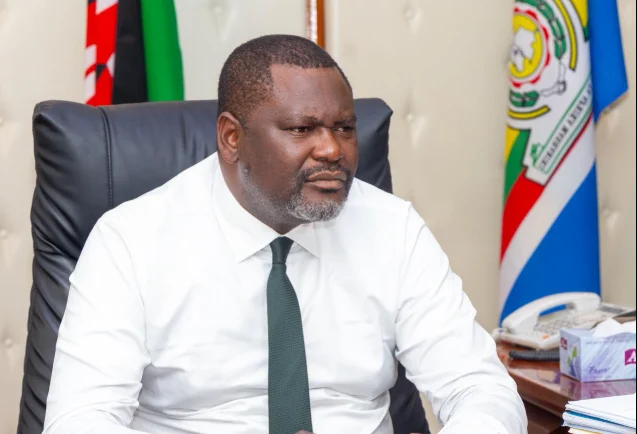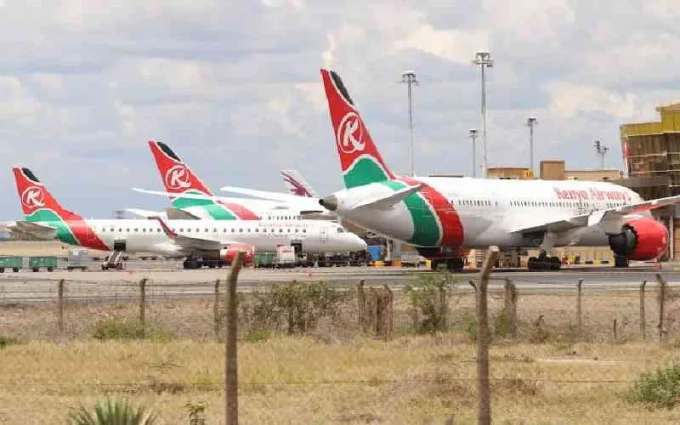Do you need information on how to study in the USA from Kenya? Keep reading to learn all about the application process, visa requirements, and the best universities for Kenyan students.
Known as “the land of opportunity,” the USA is the top destination for international students and is regarded as one of the finest education providers in the world.
With thousands of academic programs, world-class institutions, and unmatched flexibility, the United States offers a wealth of higher education opportunities that attract a significant number of international students each year.
> Technology Transforming Learning in Kenyan Universities
While studying in the US can open up numerous opportunities for Kenyans, navigating the American higher education system may feel overwhelming at first glance.
In this guide, you’ll learn how to apply to American universities from Kenya, understand visa and immigration requirements, plan your finances, and explore scholarship options to make the process easier. Let’s get started!
The main differences between Kenyan and American higher education systems

You’ll probably want to start by learning more about how higher education in the USA works. Discover the fields of study and qualifications on offer, plus other essential information like entry requirements, application deadlines, and start dates.
Key differences between the undergraduate systems in the US and Kenya include:
Length of study
In the USA, undergraduate programs are usually three to four years long, while in Kenya, they are typically four years, depending on the field of study. Courses like Engineering, Architecture, Veterinary Science, and Medicine can take between five and six years to complete.
Course structure
In Kenya, students focus on a specific subject throughout their degree, while in the USA, students explore different subjects before declaring a major.
Academic Terms
In the USA, most universities start their terms in mid to late August and take a break in mid-December. The second semester usually begins in early to mid-January. In Kenya, most universities operate from September to May, with breaks for holidays. However, the academic term is less standardized in Kenya, where some universities may use a semester, trimester, or quarter system.
Intakes
In the USA, universities offer three intakes throughout the academic year: Fall, Spring, and Summer. Fall is the most popular intake, with the highest number of applications, and usually begins in August or September. Spring, as a secondary option for students who miss the Fall intake, usually starts in January. The Summer intake is available for a limited number of programs and colleges and typically begins around May. In Kenya, most universities have three intakes per year—in September, May, and January—with September being the main intake for government-sponsored students at public universities.
Learning style
In Kenya, students are encouraged to learn independently. In the USA, students are expected to think creatively and independently, and hands-on experience is encouraged.
Cost
In Kenya, undergraduate degrees cost around Ksh100,000 per year, while in the USA, tuition can cost up to $22,000/year or more.
Number of schools
The USA boasts a broad selection of over 5,000 colleges and universities. In Kenya, there are around 68 universities, with 35 being public and 33 private.
Academic titles
In Kenya, academic titles progress from lecturer to senior lecturer, then professor. In the USA, the hierarchy is assistant professor, associate professor, and professor.
Sports culture
In the USA, college sports are a significant part of university life, with inter-university games often broadcast on TV. In Kenya, university-level sports are not a prominent part of the culture.
Applying to a University in the USA from Kenya: Where to Start
Studying abroad in the United States opens a world of opportunities. As an international student from Kenya, you’ll have the chance to experience a different culture firsthand and gain valuable global exposure.
When you decide to study in the USA, you are making an incredible choice for your future, joining over one million international students studying at various American universities as of 2024.
Some of the top American universities admitting international students today include Princeton University, ranked number one by Forbes and America’s Top Colleges; Stanford University ranked number two; Massachusetts Institute of Technology (MIT), ranked third; Yale University, fourth; and the University of California, Berkeley, which ranks fifth according to America’s Top Colleges, among many more other institutions which provide excellent opportunities as well.
How to Study in the USA as a Kenyan student
To study in the United States from Kenya, you’ll need to apply for a student visa (F or M visa) based on your course of study and the type of institution you plan to attend. In total, there are three types of student visas you can apply for.
- F Student Visa: For full-time international students pursuing academic studies at an accredited US college or university.
- M Visa: For students entering nonacademic or vocational programs. M-1 visa holders are not permitted to work during their studies.
- J-1 Visa: For students participating in exchange programs, including those studying abroad for a semester or interning in the US.
1. Begin with a Consultation
Consulting with an educational advisor early in the application process can be invaluable. A consultant will guide you through each step, considering your academic background, financial resources, and career goals to match you with suitable universities and programs.
According to data from the Student and Exchange Visitor Information System (SEVIS), EduCare International is a university advising and counselling service for students and parents in East Africa who are seeking opportunities to study in the USA.

“Our expert consultants will explain the process of applying to a US university and discuss your study and career goals,” says Omar Mohamed, the Director at EduCare International.
As a full-service educational consulting firm that helps students and educational institutions with the recruitment process, EduCare offers a range of services, including:
* Academic record evaluation
* University selection and application review
* Student visa application preparation
* Financial aid application assistance
* Pre-departure orientation
EduCare has offices in Nairobi, Mombasa, Eldoret, and Kakamega, with its headquarters on the ground floor of Madonna House in Westlands, Nairobi. They provide free, independent advice and support for Kenyan students applying to study in the USA. You can contact them at +254 784 999 997 or email [email protected].
2. Choose your course and university
Going to study in the USA from Kenya provides you with the skills, outlook, and confidence you need to fulfil your potential. To ensure you choose the right course for your goals, your consultant will assess your academic background and suggest three or four universities where you can secure offers.
When researching schools, consider the acceptance rate, location, tuition, and campus activities.
3. Register and apply
Applying for an undergraduate course in the USA is straightforward. Your consultant will review your personal statement, CV, reference letters, and application forms prior to submission, ensuring accuracy.
To proceed, you’ll need:
* A valid passport
* Transcripts of academic records (KCSE C+ and above)
* At least two recommendation letters
* Proof of funding for education, living, and travel costs
* Evidence of intent to leave the US after completing your course
* A passport photo
* A writing sample
Certified education agents, such as Educare, can assist in writing your personal statement, which can be a deciding factor for your application. They also allow you to apply without taking TOEFL or IELTS to prove English proficiency or standardized tests like the SAT and ACT.
4. Review and accept your offer
Your university or college will inform you (usually via email) whether you have received a conditional or unconditional offer. A conditional offer requires you to meet certain conditions, such as grades, qualifications, or experience, whereas an unconditional offer indicates you’ve met all entry requirements and are guaranteed a place.
Upon acceptance to an American university, students seeking their F-1 visa will receive a Certificate of Eligibility for Nonimmigrant Student Status from their school.
5. Apply for a student visa
Kenyan students typically apply for an F-1 (for academic studies) or M-1 visa (for vocational programs). The application process includes completing the DS-160 form and scheduling a visa interview in the US. Embassy in Nairobi, and paying the visa fee. A consultant can help manage your visa application to improve its success rate, guide you on necessary documentation, and handle communications with US immigration officials.
Visa processing times vary, so aim to apply at least three months before your program’s start date.
6. Final Preparations
Once your visa is approved, you can start preparing for your move, including booking flights, arranging accommodation, and gathering any essential items for your stay in the US. Expect to spend approximately Ksh2.5-5 million on tuition, travel, and living expenses, though exact costs depend on your chosen university and program.
With these steps in place, you’re ready to embark on a transformative educational journey in the United States.
> List of degree courses rejected and the universities











Given the current uncertainties around studying in the USA, it’s a good time for students to explore safer, affordable, and equally rewarding alternatives.
At Solomons International, we’ve helped many students discover top global study destinations like India, Germany, France, and Australia — with some even receiving 100% scholarships in recognized universities.